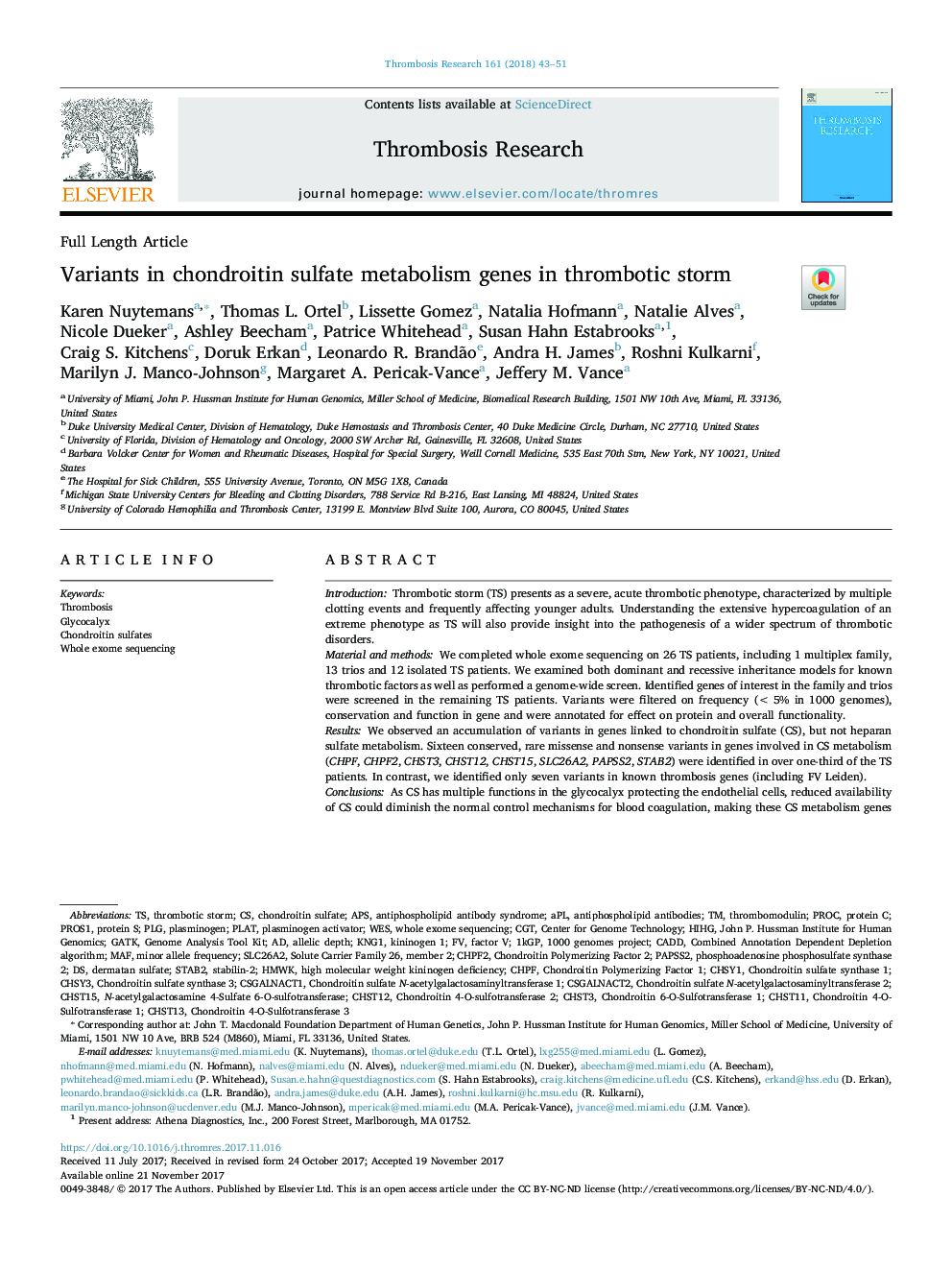| Article ID | Journal | Published Year | Pages | File Type |
|---|---|---|---|---|
| 8679711 | Thrombosis Research | 2018 | 9 Pages |
Abstract
As CS has multiple functions in the glycocalyx protecting the endothelial cells, reduced availability of CS could diminish the normal control mechanisms for blood coagulation, making these CS metabolism genes strong potential risk factors for TS. Overall, no single gene was identified with strong evidence for TS causality; however, our data suggest TS is mediated by an accumulation of rare pro-thrombotic risk factors.
Keywords
MAF1000 Genomes ProjectCADDHMWKPROCGATKCGTWESPLGAPLChPFAPsAntiphospholipid antibodiesThrombosisThrombomodulinWhole exome sequencingAntiphospholipid antibody syndromeDermatan sulfateChondroitin sulfatesFactor Vminor allele frequencyplasminogen activatorPros1Stabilin-2Protein CProtein SplatPlasminogenChondroitin sulfateGlycocalyx
Related Topics
Health Sciences
Medicine and Dentistry
Cardiology and Cardiovascular Medicine
Authors
Karen Nuytemans, Thomas L. Ortel, Lissette Gomez, Natalia Hofmann, Natalie Alves, Nicole Dueker, Ashley Beecham, Patrice Whitehead, Susan Hahn Estabrooks, Craig S. Kitchens, Doruk Erkan, Leonardo R. Brandão, Andra H. James, Roshni Kulkarni,
